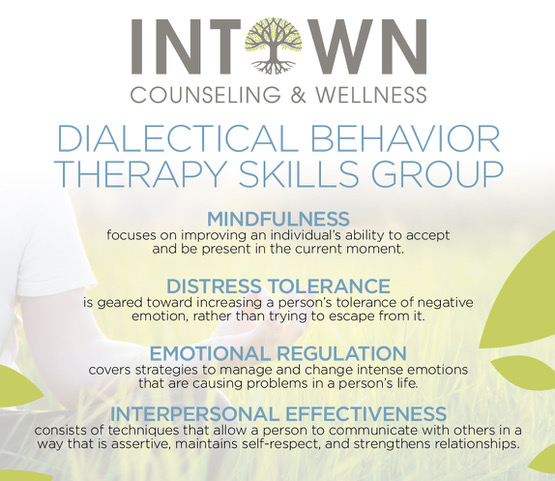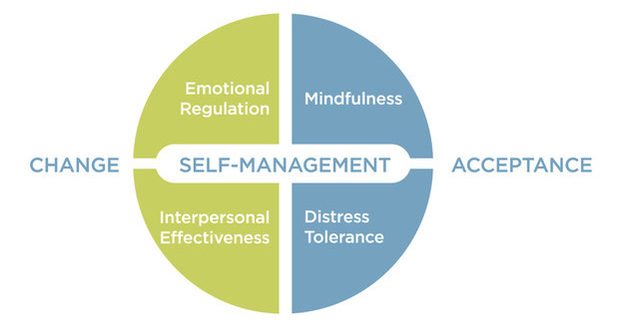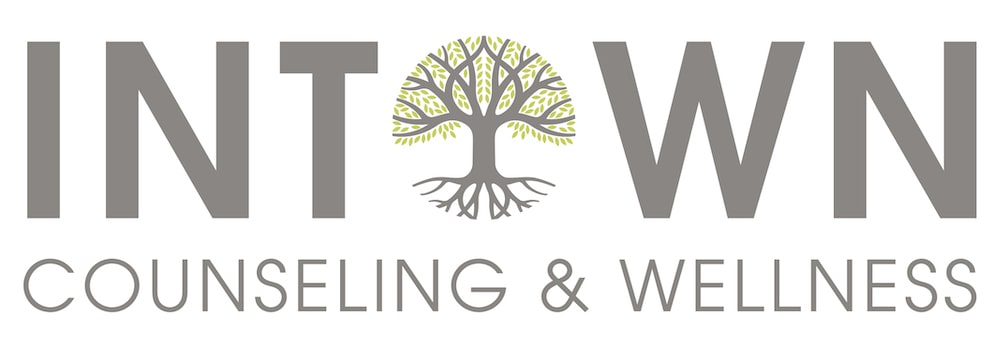Dialectical Behavior Therapy (DBT) Skills Group
Dialectical Behavior Therapy (DBT) Skills Group is an evidence-based treatment that has proven effective for a diverse range of clients. DBT offers valuable resources for anyone striving to achieve greater balance and emotional well-being in their lives. Clients can participate in our DBT Skills Group either virtually or in person at our new office in Buckhead, conveniently located at 2921Piedmont Rd. NE, Atlanta, GA 30305,near the corner of Piedmont and Pharr Rd.
In today’s fast-paced world, many of us grapple with stress, anxiety, and overwhelming emotions that can hinder our performance in various aspects of life—at work, in relationships, and within ourselves. The skills learned in our DBT Skills Group are designed to empower you to break through these barriers, enabling you to perform at your best and navigate challenges with renewed confidence and resilience.
DBT integrates a variety of effective therapeutic approaches, including cognitive behavior therapy (CBT), assertiveness training, validation strategies, and mindfulness practices. At the heart of DBT lies the dialectic—the balance between acceptance and change. This powerful framework encourages you to embrace your current reality while simultaneously striving for personal growth and improvement.
By joining our DBT Skills Group, you will become part of a supportive community where you can learn alongside others who share similar experiences. Together, we will explore essential skills and acquire practical tools to navigate life’s challenges effectively, ultimately fostering a healthier and more balanced life.
If you are ready to enhance your well-being and performance, we invite you to join us on this
transformative journey.
Group Schedule:
Wednesdays: 5:30 PM – 7:00 PM
Thursdays: 11:00 AM – 12:30 PM

Generally, Dialectical Behavior Therapy (DBT) may be seen as having two main components:
- Individual weekly psychotherapy sessions that emphasize problem-solving behavior for the past week’s issues and troubles that arose in the person’s life. During sessions, the therapist and client work toward learning and improving many basic social skills.
- Weekly group therapy sessions, generally 2 hours a session which is led by a trained DBT therapist. In these weekly group therapy sessions, people learn skills from one of four different modules: interpersonal effectiveness, distress tolerance/reality acceptance skills, emotion regulation, and mindfulness skills are taught.
Reach Out Today!
What does “dialectical” mean?
The term “dialectical” means a synthesis or integration of opposites. The primary dialectic within DBT is between the seemingly opposite strategies of acceptance and change. All the skills and strategies taught in DBT are balanced in terms of acceptance and change. For example, DBT therapists accept clients as they are while also acknowledging that they need to change in order to reach their goals.

What is Mindfulness?
Mindfulness is a way of learning to pay attention to whatever is happening in your life that allows you a greater sense of connection to your life inwardly and outwardly.
Mindfulness has to do with the quality of awareness that a person brings to everyday living; learning to control your mind, rather than letting your mind control you. Mindfulness practice is the means of familiarizing oneself with awareness itself. When you recognize the moment, what it looks like, feels like, tastes like, sounds like – you are being mindful.
The recognition of an innate, ever-present awareness is the foundation of positive mental health, psychological and emotional resilience and an overarching sense of wellbeing that can be effectively cultivated and relied upon. More than three decades of scientific research at medical centers all over the world suggests that training in mindfulness can positively and often profoundly affect participants’ ability to reduce stress, pain, illness, and medical symptoms while also learning to live life more fully. (Center for Mindfulness in Medicine, Healthcare and Society at UMASS Medical School)
DBT skills are divided into four primary skill sets:
- Mindfulness focuses on improving an individual’s ability to accept and be present in the current moment.
- Distress Tolerance is geared toward increasing a person’s tolerance of negative emotion, rather than trying to escape from it.
- Emotional Regulation covers strategies to manage and change intense emotions that are causing problems in a person’s life.
- Interpersonal Effectiveness consists of techniques that allow a person to communicate with others in a way that is assertive, maintains self-respect, and strengthens relationships.
Mindfulness skills are the essential part of all skills taught in skills group are the core mindfulness skills. Observe, Describe, and Participate are the core mindfulness “what” skills. They answer the question, “What do I do to practice core mindfulness skills?” Non-judgmentally, One-mindfully, and Effectively are the “how” skills and answer the question, “How do I practice core mindfulness skills?”
Distress Tolerance skills are concerned with tolerating and surviving crises and with accepting life as it is in the moment. Distress tolerance skills have to do with the ability to accept, in a non-evaluative and nonjudgmental fashion, both oneself and the current situation. Although the stance advocated here is a nonjudgmental one, this does not mean that it is one of approval: acceptance of reality is not approval of reality. Acceptance skills include radical acceptance, turning the mind toward acceptance, and willingness versus willfulness.
Interpersonal Effectiveness skills include effective strategies for asking for what one needs, how to assertively say ‘no,’ and learning to cope with inevitable interpersonal conflict. This module focuses on situations where the objective is to change something (e.g., requesting someone to do something) or to resist changes someone else is trying to make (e.g., saying no). The skills taught are intended to maximize the chances that a person’s goals in a specific situation will be met, while at the same time not damaging either the relationship or the person’s self-respect.
Emotional Regulation skills include: Learning to properly identify and label emotions, Identifying obstacles to changing emotions, Reducing vulnerability to “emotion mind,” Increasing positive emotional events, Increasing mindfulness to current emotions, Taking opposite action and Applying distress tolerance techniques.

Learn and practice helpful mindfulness practices
1.) Progressive Muscle Relation
2.) Paired Muscle Relaxation
3.) Breathing Exercises
4.) Contemplative Meditation
5.) Body Scan Meditations
6.) Loving Kindness Meditation
7.) Guided Imagery
- If you are interested in participating in one of our DBT Skills groups, please call to schedule an initial consultation with the group leader, Scott Leenan, MS, LPC, CRC, CPCS (intensively trained in DBT). We select members for each group with the intention of creating a cohesive, supportive and balanced group learning experience.
- Individual therapy is a requirement of group enrollment. You are welcome to work with any of the therapists at Intown Counseling & Wellness; although, you may also work with your own therapist. We don’t require your individual therapist have training in DBT; although, some working knowledge of DBT is helpful.
- We also consult with individual therapists of group members in order to facilitate a cooperative team approach and to ensure we are collaborating effectively.
Benefits of Group Therapy
- Group therapy allows people to receive the support and encouragement of the other members. Group members are able to see that there are others going through the same thing, which can help them feel connected.
- Group members can serve as role models to other members of the group. By seeing someone who is successfully coping with a problem, others can be reminded that is hope and recovery is possible. As each person progresses, they can in turn serve as a role model and support figure for others. This fosters feelings of success and accomplishment.
- Group therapy is cost effective. Instead of focusing on just one client at a time, the therapist can devote time to a larger group of people.
- Group therapy offers a safe haven. The setting allows people to practice within the safety and security of the group.
- By working in a group, the therapist can see first-hand how each person responds to others in social situations. This can provide valuable feedback to each client.
